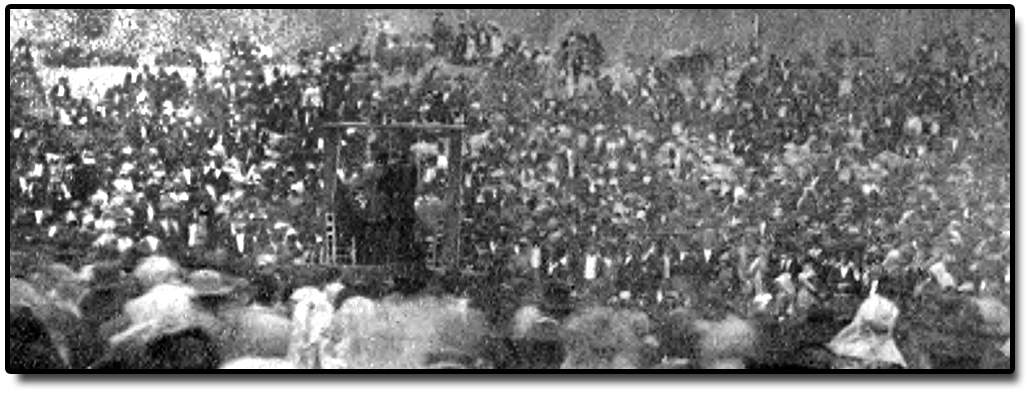'CROWN OF TANNASEE' ~ Made From Opossum Tails, Scalps From Enemies, and Five Eagles' Tails
Chief Attakullakulla
Birth: 1708 in Overhill Settlements, Monroe, Tennessee
Death: May 1777 in Nacheztown, North Carolina Now Tennessee
Chief Attakullakulla (1708 - 1777)
6th great grandfather
son of Chief Attakullakulla
daughter of Cheucunsene Kunmesee Dragging Canoe Canoe
son of Sarah Herrin Cherokee Native American
daughter of Gabriel Herren
son of Abigail Herrin
daughter of Green Berrie F Herrin
daughter of Fannie Pearl Herron
Chief Attakullakulla (son of White Owl Raven and Nancy Moytoy) was born in 1708 in Overhill Settlements, Monroe, Tennessee. He married Nione Ollie (NayO nay) Ollie Nionee OCONASTOTA of the Paint Clan (a cousin), Overhills, Great Tellico, Tennessee.
Nione was 1/2 Shawnee-Cherokee-Creek daughter of
Oconostota Groundhogsausage (oh, my) and Unknown PAINTCLAN/Woman Clan. Attakullakulla died May 1777-1780 in Nacheztown, North Carolina - Now Tennessee.
Non-Cemetery Burial
Attakullakulla was originally Miskwakihha Indian, one of the divisions of the Algonquin Nipising Indians. He had been captured as an infant and then adopted into the Cherokee Tribe. This account was given by Turtle At Home, his son in 1809 to Maj. John Norton.
He was brought up as the son of a chief and the expectations were high for the young boy, but, as with most Native American tribes, any tribal position he gained would have to be earned on his own. Ookoonaka was his given name at birth. He grew to be a respected member of the tribe and the name Attakullakulla, which is said to mean "leaning wood" in Cherokee, became the name the young warrior used to identify himself.
He studied Cherokee government and trained as a warrior learning tactics and the
arts of the bow, spear, knife, and blowgun. The skills came easily to him and his
presence of mind during battle was highly regarded among his tribe. In addition, he was
taught a trade and, while still young, developed a great ability as a woodworker and
house builder - a career that earned him a reputation as one of the best carpenters in the
Cherokee Nation.
As an adult he became well-known for skills at oratory, diplomacy, and negotiation.
In 1730, Attakullakulla was among the Cherokee leaders who were taken to England to meet with King George. Upon meeting King George, the Cherokee presented him with a number of gifts, including the 'Crown of Tannasee' (a crown made from opossum tails,
scalps from their enemies, and five eagles' tails.
Some English newspapers described him as probably in his twenties
and of remarkable small stature, slender and delicate frame.
In 1755, the governor of Carolina called for a meeting with the Cherokee for the purpose of conceding a treaty of peace between the Cherokee and the Creek. The group (506 chiefs, headmen, and warriors) met in Sauda near the present-day Greenville, South Carolina. Attakullakulla stood before the group with a bow in one hand and a sheaf of arrows in the other and acted as the principal spokesperson for the Cherokee Nation. The English accounts of the meeting describe Attakullakulla as having "the dignity and graceful action of a Roman or Grecian orator, and with all their ease and eloquence."
At the meeting Attakullakulla presented a child to the governor saying: "I have brought this
child that when he grows up he may remember our agreement this day and tell it to the next generation that it may be known forever." Attakullakulla also asked that the proceedings of the meeting be written down so that it could be kept forever. In this way, he acknowledged both the Cherokee oral
tradition and the English practice of writing.
Attakullakulla died around 1780 (about 80 years old) and the leaderships
of the Cherokee passed to the younger generation including
Dragging Canoe (Attakullakulla's son) and Bloody Fellow.
Most of the modern American History books
say Attakullakulla fought with the Americans in
the American Revolution. His son, Dragging Canoe fought on the side of the British, with the
Chickamagua Cherokees.
"His voice was influential, and often dominate, in the councils of the Cherokee
Nation for nearly 50 years." Journal of Cherokee Studies, Vol. 3, No. 1, Winter 1978.
Some say that he was the Brother of Tame Doe (mother of Nancy Ward.)





Comments
Post a Comment